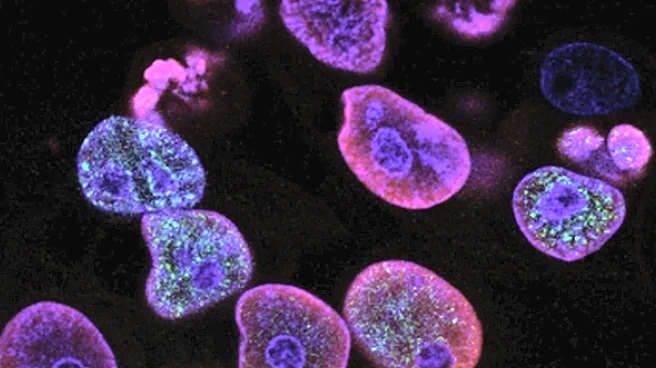What is the story about?
What's Happening?
Glycomine, Inc. has initiated dosing in a global Phase 2b study of GLM101, a mannose-1-phosphate replacement therapy for PMM2-CDG, a rare genetic disorder. The study, named POLAR, aims to evaluate the safety and efficacy of GLM101 in treating phosphomannomutase 2 congenital disorder of glycosylation, which leads to severe neurological and systemic impairments. The trial will enroll approximately 50 participants across 16 sites and 10 countries, with a focus on improving ataxia, a key symptom of PMM2-CDG. The study consists of a 24-week placebo-controlled phase followed by a 24-week open-label extension.
Why It's Important?
PMM2-CDG is a debilitating condition with no approved treatments, making the development of GLM101 crucial for affected individuals. The study's success could provide a new therapeutic option, improving the quality of life for patients by addressing neurological symptoms like ataxia. This advancement highlights the importance of orphan drug development in addressing rare diseases, potentially paving the way for similar treatments in other genetic disorders.
What's Next?
Following the completion of the Phase 2b study, Glycomine may proceed to Phase 3 trials if results demonstrate significant efficacy and safety. Regulatory approval processes will be crucial in bringing GLM101 to market, offering hope to patients with PMM2-CDG. The company might also explore additional applications of mannose-1-phosphate replacement therapy in other glycosylation disorders.
Beyond the Headlines
The study emphasizes the challenges in developing treatments for rare diseases, where patient populations are small and research funding is limited. It raises questions about the accessibility and affordability of such therapies once approved, highlighting the need for policies that support rare disease drug development and distribution.















